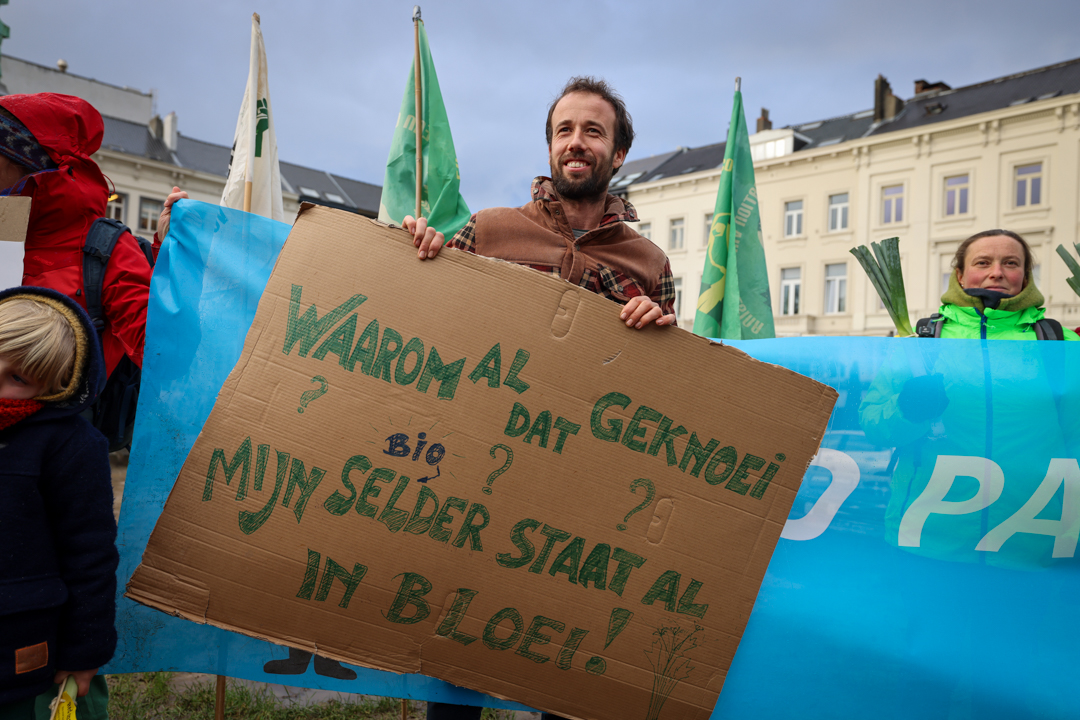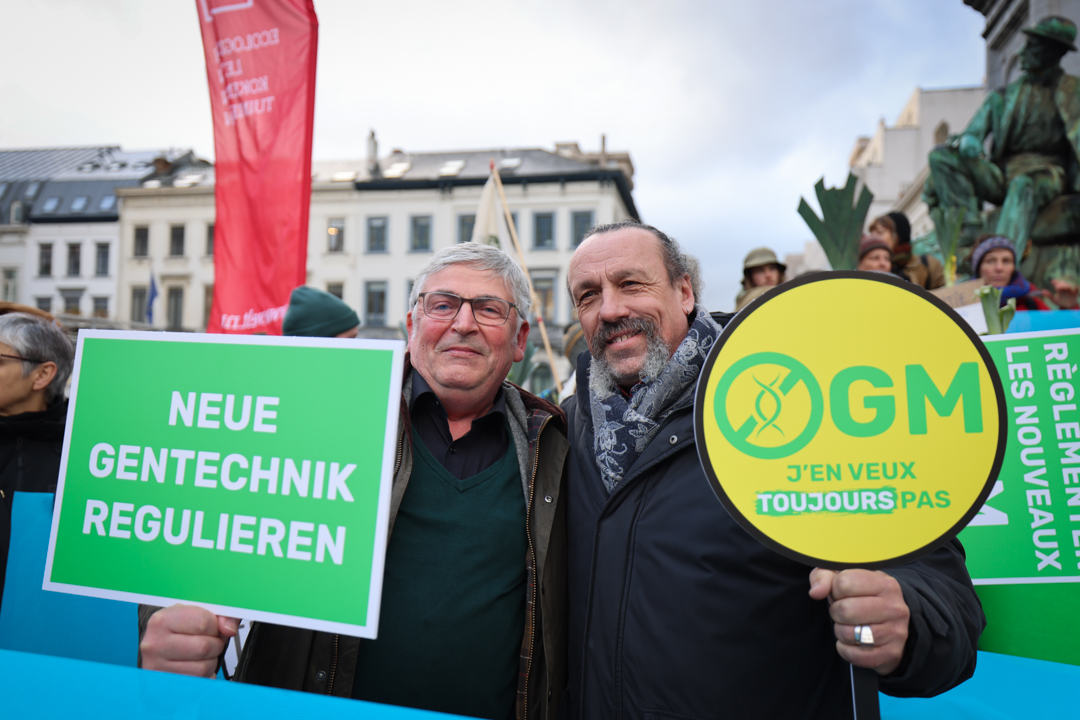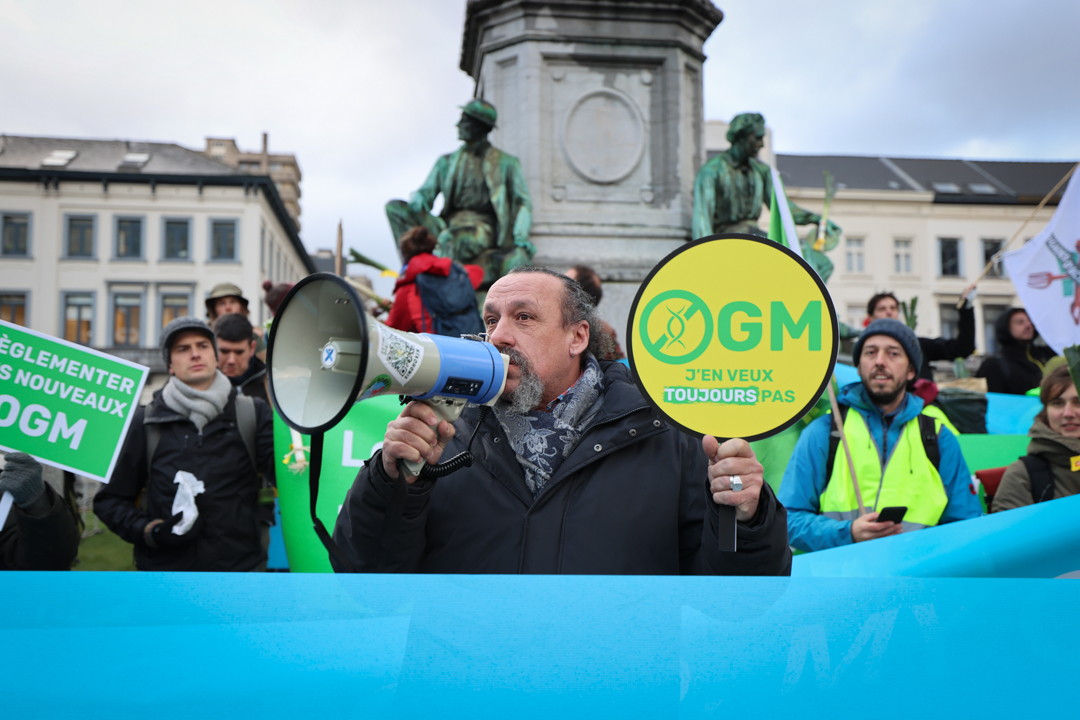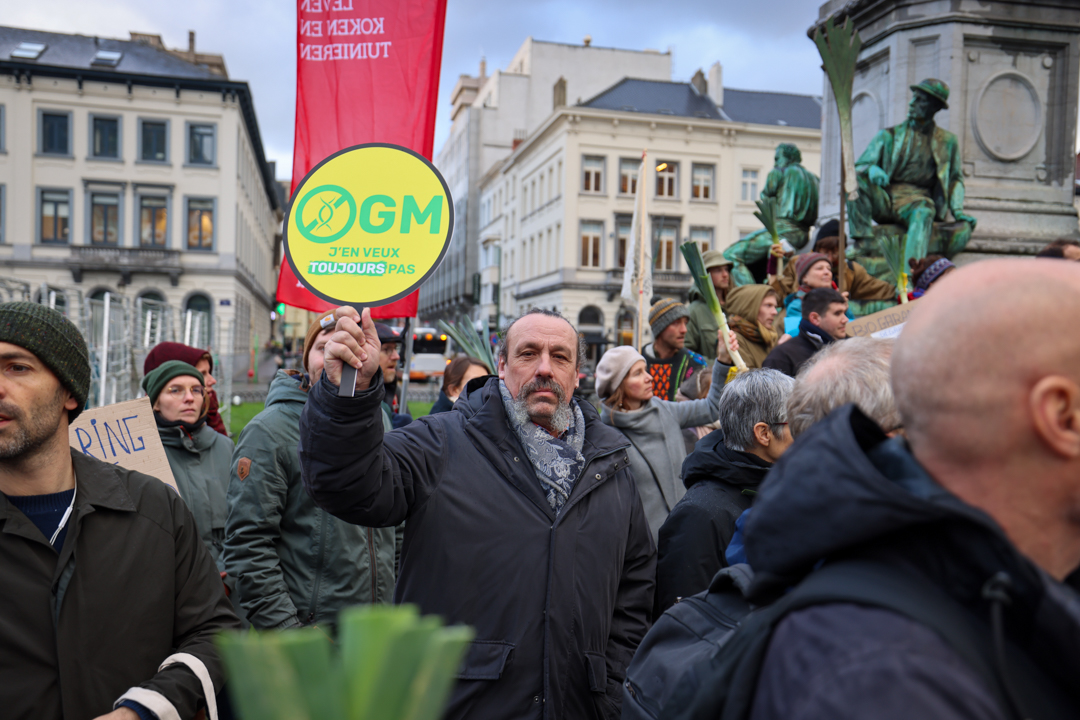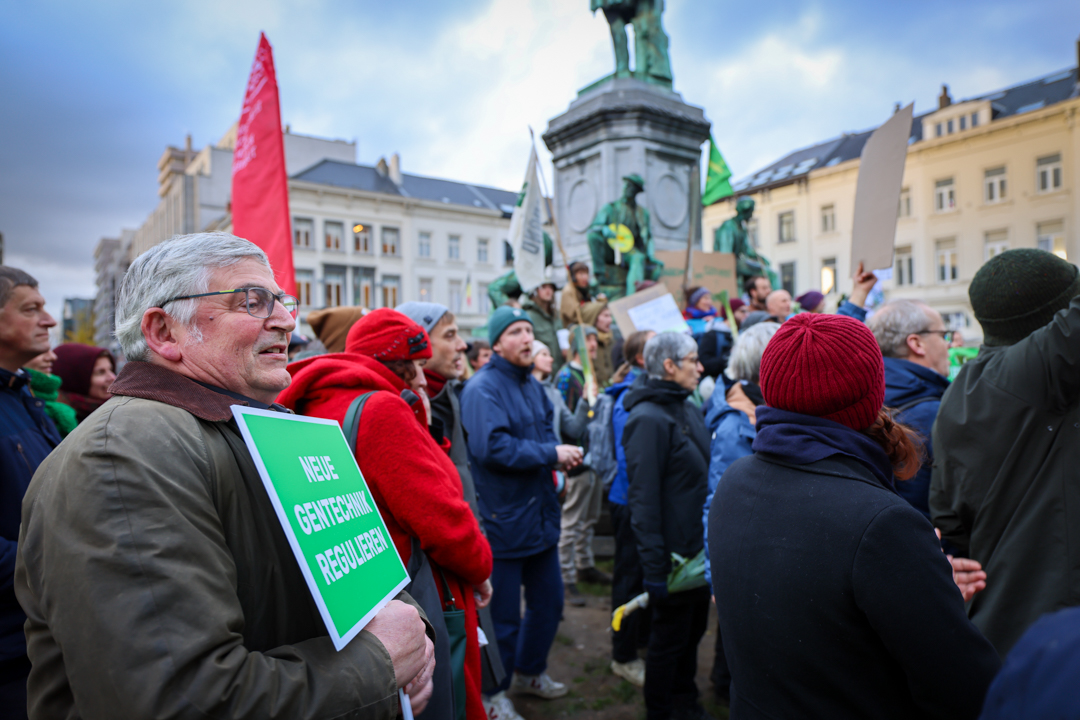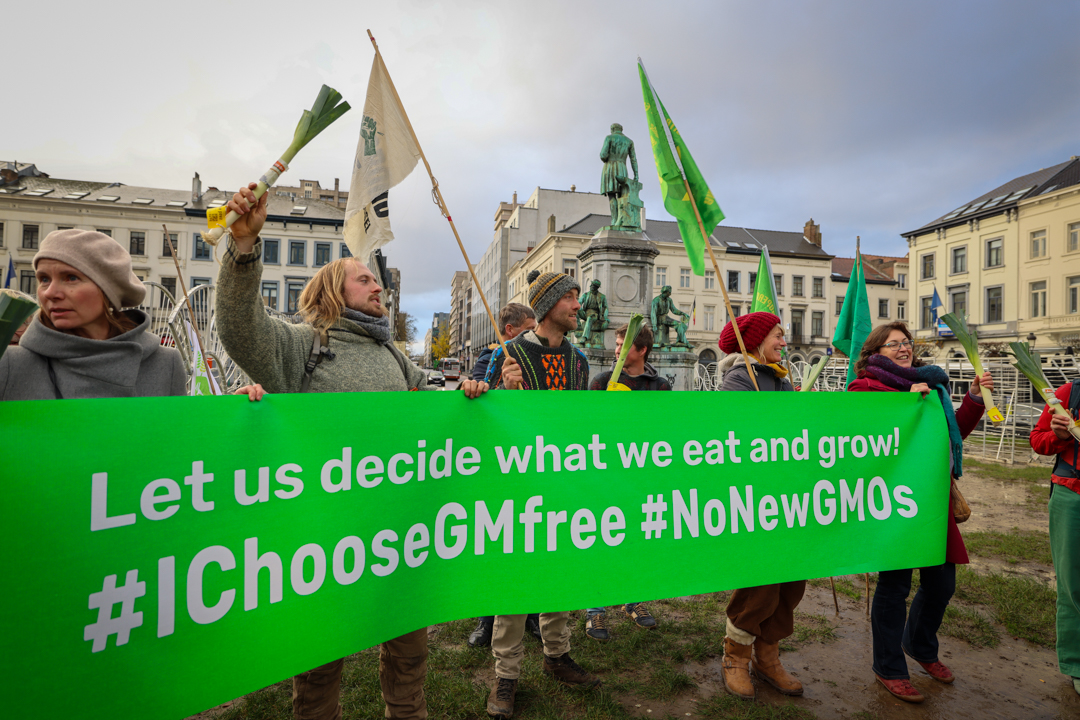
"People will no longer know whether they are getting GMOs on their plates" – organic farmer
On 29 November Dutch and Belgian farmers, farmers' associations and environmental organisations headed to Brussels to protest against the European legislative proposal that seeks to completely deregulate new GMOs made with techniques such as CRISPR/Cas. If these plans go ahead, the freedom of choice for farmers and consumers to work and eat GMO-free will disappear.
In the European Commission's proposal, new genetic engineering techniques such as CRISPR/Cas are no longer given a risk assessment. As a consequence, they would be used freely, without any tracing or labelling.
"People will no longer know whether they are getting GMOs on their plates," said organic farmer Greet Lambrecht of the farmers' association Vitale Rassen vzw. "Even organic farmers and others, who consciously work GMO-free, will lose that freedom of choice. However, this is crucial. If Europe is serious about the growth of organic agriculture, it must offer watertight guarantees that the organic sector can continue to work GMO-free. The current proposal does not offer that guarantee."
The new legislation also poses a major threat to breeders who develop new crop varieties at the request of farmers. Patents on traits obtained with new GMOs will put pressure on the possibilities for breeders. What makes it even worse is that the European Commission is also currently hammering out a law that will limit the freedom to use and exchange seeds.
Greet Lambrecht said: "Breeding is a human right, but these two steps deprive farmers of the freedom to do this themselves."
Finally, the new genetic engineering techniques carry risks, contrary to what genetic engineering companies would have us believe. They give the impression that one can easily modify a particular trait of a plant without affecting other traits. Nothing could be further from the truth.
Farmer Tijs Boelens, spokesperson for the farmers' movement Boerenforum, said: "The nutritional value or toxicity of crops can change unintentionally. Such side effects have hardly been independently investigated to date, yet the European Commission claims that most new GMOs would be safe. In other words, Europe is jeopardising its own precautionary principle."
What angers most is that Europe is quietly trying to get this bill approved, while the majority of European consumers and farmers do not want new GMOs.
Tijs Boelens said: "It shows a Europe that does not choose for the people, but for the profits of a few listed companies. European policymakers are taking big risk here: European farmers already feel like they are constantly being pushed on the defensive; this will only get worse. It is now up to Europe to show that it does care for its farmers, instead of leaving the door wide open to companies like Bayer-Monsanto, Corteva and Syngenta. Instead of relying on unproven techniques, Europe should better focus on system-based solutions, such as organic and agroecological farming. These have already shown their value."
During the protest, five MEPs addressed the crowd – three Greens, one Left and one S&D.
